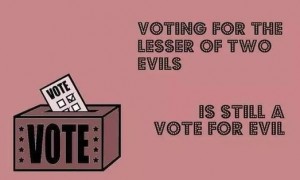advice vs. advise
1. 首先是发音,advice 的结尾是/s/,advise的结尾是/z/
2. advice 是不可数名词,表示建议,劝告,忠告
Take my advice and leave right now!
听我的话快滚吧!
3. advise是动词,表示给予建议
I advised against their doing it .
我劝他们不要做这件事。
4. 接下来透过影片了解如何在口语中使用这两个单字喔!
Advice, Advise的差异 (Advice, Advise)
affect vs. effect
1. affect 大多当作动词使用,表示影响;对……发生作用
The amount of rain affects the growth of crops.
雨量影响作物的生长。
2. effect 大多当作名词使用,表示某事物的后果或结果
This had a great effect upon the future of both mother and son.
这对母子俩的将来影响很大。

3. 而其实 affect 有时也可以当名词使用,effect 有时也可当作动词使用!
我们藉由以下轻松的影片更详细的解释这个用法
英语词汇affect and effect (English Vocabulary: ‘affect and effect’ @doingenglish)
aisle vs. isle
1. aisle 是(戏院,列车,教堂等座席间的)通道,走道
He followed the usher down the aisle.
他跟着领座员沿着通道走过去。
2. isle 是小岛
In a word, the isle was inhabited.
总而言之,这个小岛曾经是有人居住的。
all together vs. altogether
1. all together 是个片语,解释为在一个团体中聚集或联合
I keep my books all together, so they’re easy to find.
我把我的书都放在一起,所以很容易找到。
2. altogether 是副词,表示完全;总共;总之
I am altogether on your side in this matter.
在这个问题上我完全支持你。
He bought altogether 500 hectares of land.
他总共买了五百公顷土地。
Altogether, exports are looking up.
总的说来,出口贸易在好转。
along vs. alone
1. along 当作介系词的意思是沿着;顺着
I was driving my car along a muddy path.
我沿着泥泞的小路开车。
2. along 当作副词的意思是一起;去到
Come along with us.
跟我们一道去吧。
I‘ll be along in a minute.
我一会儿就来。
3. alone 当作形容词与副词时是单独的,独自的
She watches TV when she is alone.
独自一人时,她便看电视。
I can do it alone.
我可以独自办理此事。
aloud vs. allowed
1. aloud 是副词,代表大声地
The hungry baby cried aloud.
饿了的婴孩放声大哭。
2. allowed 是动词 allow 的过去式与被动语态,表示允许,准许
Swimming is not allowed at this beach.
这片海滩禁止游泳。
She allowed us to smoke.
她允许我们抽烟。
bare vs. bear
1. bare 是形容词,表示裸的,光秃秃的,勉强的
The child was bare to the waist.
那孩子打赤膊。
All they had were the bare necessities of life.
他们所有的仅仅是生活必需品而已。
2. bear 当作动词时是支持,承受;承担
I can‘t bear to see you like this.
我不忍见你这样。
born vs. -borne
1. born 是形容词,代表诞生的;产生的
The baby was born last Friday.
孩子是上星期五生的。
2. -borne 是复合形容词,表示运载的;输送的
esea-borne trade
海上贸易
air-borne troops
空降部队
break vs. brake
1. break 当动词是打破;破坏,当名词时是损毁;休息
They broke down the door with a big heavy log.
他们用一根粗大的木头将门砸开。
There is a ten–minute break between classes.
课间有十分钟休息时间。
2. brake 是刹车的意思
He braked his car just in time to avoid an accident.
他及时煞车,避免了一次事故。
censure vs. censor
1. censure 当作名词或动词是责备;谴责
The judge censured the driver but didn‘t fine him.
法官责备了司机但没罚他款。
2. censor 当作名词时是出版物、电影等的审查员,当作动词时是审查
He censored the prisoners’ letters.
他检查囚犯的信件 。
complement vs. compliment
1. complement 是补充物,补足物;配对物
Homework is a necessary complement to classroom study.
家庭作业是课堂教学的必要补充。
2. compliment 当作名词与动词时代表恭维;敬意
It‘s the nicest compliment I‘ve ever heard.
这是我听到的最好的恭维话。
defuse vs. diffuse
1. defuse 是拆掉、消除,或是缓解紧张的情势
We’re still trying to defuse the detonator.
我们还在试着能拆除引信。
The transfer defuses a tense situation on the Antarctic seas but activists said they will continue to harass the Japanese fleet.
此行动缓解了南极地区的紧张局面,但是活动人士说,他们将继续骚扰日本捕鲸船队。
2. diffuse 是使(热、气味等)四散,扩散(气体等);使渗出
The roses diffuse the scent to the air miles around.
玫瑰花的香味弥漫在几英哩的空气中。
看完文章与影片后,以上 12 组单字大家都会分辨了吗?
让大家再也不会被这些双胞胎所迷惑啰!







